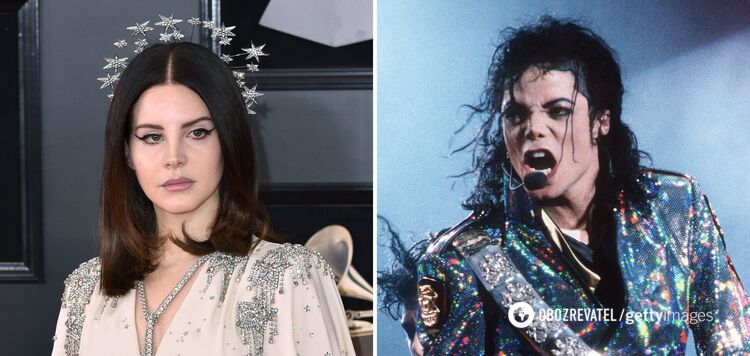
David Bowie
David Robert Jones (real name) was born on January 8, 1947, in Brixton, England. David's difficult childhood was spent in one of London's poorest neighborhoods. His father was a publicist and his mother worked in a travelling theater. Taking part in one of the school fights, young David Jones suffered a serious injury to his eye and one of his pupils was paralyzed.
In his early youth, David Jones learned to play the guitar and later the saxophone, trying his hand at rhythm and blues bands. His parents really wanted David to be a pop star. At the age of 16, he organized his first band, David Jones and King Bees, and later the next two, the Manish Boys and Lower Third. David alternately joined one band and the other, but his unwillingness to be just a musician does not allow him to stay in any of the musical groups.
Like all young people of that time, he tries to repeat the success of The Beatles and the Rolling Stones - to release a hit single and get rich. Without waiting for wide recognition from any of the bands he was in, David Jones takes the creative pseudonym David Bowie, to avoid being confused with the vocalist of The Monkees, and begins recording his first album under the name "David Bowie". Soon he finds himself on television with his song "Love You Till Tuesday" on one of his shows. But the album, released in 1966 in small circulation by a little-known company, does not manage to reach any of the lines of the hit parades, and Bowie leaves the music scene.
David tries his hand at theater, playing as the mime of Lindsey Camp's theater. Bowie is gradually drawn into the theatrical life, actively touring with the company all over England. In 1967 David meets his future wife Angela Barnet. Barnet manages to convince one of his good acquaintances working for Mercury Records to record several Bowie compositions. The result is the single "Space Oddity". In 1969, an album of the same title is released. Bowie finally succeeds - "Space Oddity" gets the 8th position in the British hit parade.
However, the album does not elevate Bowie to the status of a superstar - his concerts are held in half-empty halls. His third album, The Man Who Sold the World, was released in 1970. The sound of the album differs from his previous works - the sound becomes heavier. Music critics call the new work of David Bowie "the beginning of the era of glam rock".
In 1971, Bowie recorded the album Hunky Dory, an ironic tribute to '60s idols Andy Warhol and Bob Dylan. In 1972, The Rise And Fall Of Ziggy Stardust and The Spiders From Mars is released. In 1973 Bowie appears with the album Aladdin Insane. The album sells large numbers of copies, exceeding even those of The Beatles, and the musician performs in Japan. In the same year, David Bowie presents his own retro project, the album Pin-Ups, in which Bowie includes compositions of artists whose work was loved in the sixties.
In September 1973, David decides to do a musical production based on George Orwell's novel 1984. He decides that he will play the role of Diamond Dog in this production. The occasion gives birth to ideas for the next album, which is released in the winter of 1974. In 1975 "Young Americans" is released. The record finds itself in the top ten in the American chart, and the song "Fame", recorded together with John Lennon, firmly occupies the first place in the charts in England.
Not forgetting his theatrical successes, Bowie begins to act in films. In 1976, David moved to Los Angeles. Soon he is invited to star in a fantastic movie by Nicholas Roeger's "The Man Who Felt On Earth". After shooting the movie Bowie begins recording the album Station To Station, released in 1976, where soul music is replaced by electronic synthesizer sounds. While using drugs, Bowie realizes that it really hinders him from moving forward, killing the creativity inside. He goes to Berlin for treatment for drug addiction.
Finally quitting drugs, Bowie records three albums at once - Low (1977), Heroes (1977) and Lodger (1979).
The 1980s are off to a bad start for David Bowie. In 1980, a ten-year marriage to Angela Barnett comes to an end. Lonely and sad, David Bowie records his next landmark album Scary Monsters, then decides to take a break from music-making and devote himself entirely to theater and film. In 1983 his films with his participation are released - "The Hunger" with Catherine Deneuve and "Merry Christmas, Mr. Lawrence". In the same year the musician's next album "Let's Dance" is released.
His return to active creative work was marked by the release of the record "Black Tie White Noise" in 1993. In 1995 his deep, conceptual album "Outside" was released. In 1997, mixing modern electronic sounds with accelerated tempos, Bowie gets the album Earthling. In 1999 Bowie releases the unexpected, somewhat sentimental and full of lyrical songs album Hours. In general, there are new albums every year, and the style of music is constantly changing. And whatever style Bowie takes on, he makes it his own.



